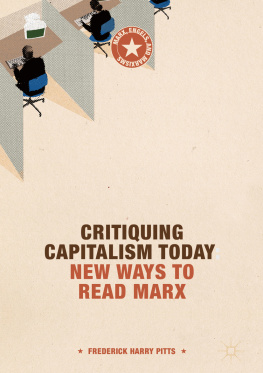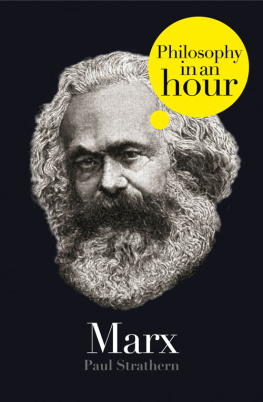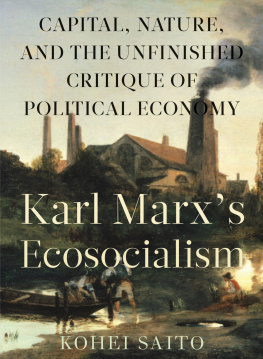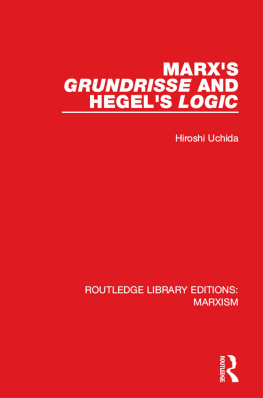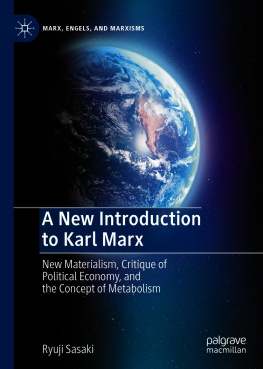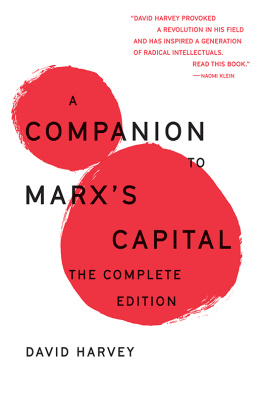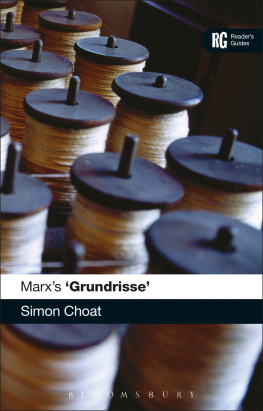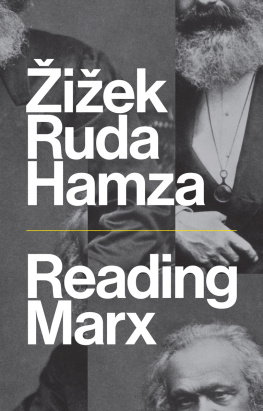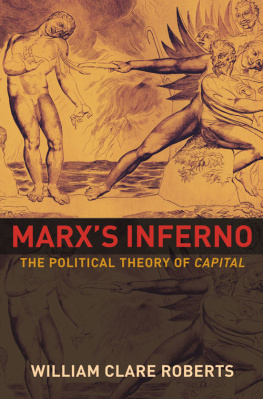1. Introduction: Marxian Value Theory in New Times
At the end of the last decade, Steffen Boehm and Chris Land observed that [t]he question of measure has become a hotly debated topic among heterodox Marxists. This debate centred on the claim that todays labour is beyond measure or immeasurable () who argued for its persistence on the basis of a defence of the traditional labour theory of value (hereafter LTOV).
Taking a different route through these questions, this book brings new theoretical resources to the understanding of what is at stake in this debate. The debates Boehm and Land recount from the time pre-existed the Anglophone ascendancy of the New Reading of Marx (NRM), a revisionist reading of value theory based on new exegetical work on Marxs manuscripts. The NRM overhauls how we think about the relationship between value, labour and their measure, providing the tools to overcome any purported crisis of measurability associated with changes in the immediate form of labour.
This renewed and critical Marxism finds a way past the impasse of autonomist debates around the crises of measurability and the law of value to craft an account of why measurement still matters in contemporary capitalism. The book comes at a time when the uptake of postoperaist ideas in popular left postcapitalist literature is gathering apace. The idea that capitalism can fall apart owing to a collapse in its capacity to capture value in existing frameworks of measure is the source of much wishful thinking (Thompson ). But rethinking value, labour and how they are measured, the NRM offers us thinking that is not wishful, but critical. This book shows how.
1.1 New Directions in Marxian Value Theory
The book sits at the theoretical meeting point of two revisionist strands that challenge the traditional understanding of value, but in different ways. They lay divergent stresses on certain parts of Marxs output. In common, they reject the ideological monoliths erected of Marxs work in the last century. They emphasise instead what is unfinished, fragmentary and open to reconstruction. They do so distinctly, however. One cites empirical reasons for its specific and selective reading of Marx. The other does so exegetically.
The first is postoperaismo . In the Italian 1960s and 1970s, its forerunner, operaismo, focused on the factory as the locus of capitalist society. Postoperaismo , however, situated the factory in society as a whole. This theoretical switch was informed by an empirical understanding of changes afoot in production. They focused on the shift towards immaterial labour (Lazzarato ). Their availability in English and Italian offered elements of an unorthodox Marx. Specifically, postoperaists seized on one part of the Grundrisse , the Fragment on Machines . The scenario Marx paints in this led postoperaists to posit a crisis in the law of value his wider theory describes. Significantly, they use a revolutionary new Marx derived from long-unpublished notebooks to suggest his key theorys exhaustion. From the Fragment, they derive a vision of an incipient communism realised in the shell of capitalism. This vision, we shall see, wields political influence today. A new generation of postoperaist-inspired dreamers begin from the same few pages of Marx.
The second is the NRM, with which we can also associate a descendent, Open Marxism , with which we will also engage in this book. Postoperaismo cites empirical reasons for its specific and selective reading of Marx. But the NRM takes an exegetical approach. It originates in Germany, around the same time as operaismo. Scholars under Adornos tutelage began scrutinising Marxs published and unpublished manuscripts (Bellofiore and Riva ). This close study showed the progression of Marxs value theory as it appears in Capital . Constantly revised and honed, in the procession of working drafts new complexities shone through. This exegesis extracts from the development of Marxs work a reconstruction of his value theory. The central insight is that value relates not to expended concrete labour as in orthodox accounts. Rather, it relates to abstract labour. This is a category of social mediation expressed in money . It springs from the exchange of commodities by means of money in the sphere of circulation . Thus, for the NRM, the Grundrisse here plays a much lesser role than Capital . And there is less consideration of empirical factors than we find in postoperaist literature. Focus falls instead upon the general laws of how capitalism proceeds through a series of social forms .
Thus, both postoperaismo and the NRM radically challenge received Marxist wisdom around value. The former comes to bury it using the Grundrisse and new empirical facts. The latter, bearing the first volume of Capital , buries only one form of it the labour theory of value (LTOV). In its place, it establishes an alternative value theory of labour (Elson ). On one hand, postoperaismo foretells the demise of the law of value and its theory. NRM, on the other hand, maintains their persistence, in radically rethought forms. The two schools are seldom treated together. This book is an occasion to do so.
1.2 The New Reading of Marx
The NRM can be thought of as something like the critique of political economy as a critical social theory (Bellofiore and Riva for the opposing view).
At the NRMs inception were two students of Adorno , Hans-Georg Backhaus and Helmut Reichelt (see Backhaus [1971], p. 52).
Instead of taking the relationship between labour and value at face value, as has traditional Marxism , it is abstract labour, and not concrete practical human activity, to which the NRM holds value to relate. This is a crucial difference between this new interpretation of Marx (which itself has its roots in the earlier work of Isaac Rubin (, p. 104). From this perspective, the commodity is more than just a product of labour . Commodity status, and the arbitration of the value that attaches to commodities, is taken to rest in exchange.
In this, the specificity of the concrete labour that contributed to the production of a given thing carrying value must be negated so as to render that thing equivalent and exchangeable with other things. Thus also the activity that grants this specificity concrete labour must be abstracted from it. It is money that renders this service. Money establishes a measure of abstract human labour in general, responsible for producing exchangeable things in general. The measure money brings this abstract labour into existence, in the exchange of commodities.
The labour- time that is central here is not time worked but time represented in a certain amount of money the socially necessary labour time (hereafter SNLT) in which things in average conditions are produced (Arthur ). The actual labour as it is worked succeeds or fails based on whether it produces goods above, beyond or in line with this socially necessary standard, which is expressed in the going price of a commodity. Whether the work that takes place is socially necessary or not is arbitrated in the successful exchange of the product of labour as a commodity by means of money. This can depend on whether other capitalists overproduced a given commodity, for instance. Marx writes that
The labour- time socially necessary to produce [value-bearing commodities] asserts itself as a regulative law of nature. In the same way, the law of gravity asserts itself when a persons house collapses on top of him. (, p. 78)
But, in generating the conditions for such a crisis, this is not as natural as it seems, but rather socially constituted through human practice that is through the process of exchange, the social relation of value. Social necessity is not something specific to the labour itself the validity of the economic category does not hold in abstraction from society but is established socially through the abstract relation of all things with all other things, in monetary exchange. This socially validates the private labour that went into their production as social and value-producing. This is arbitrated in exchange. Value arises from the meeting of commodities by means of money. As Bellofiore and Riva write,

